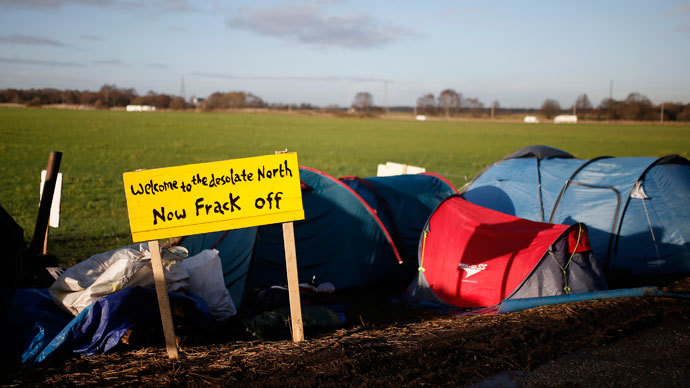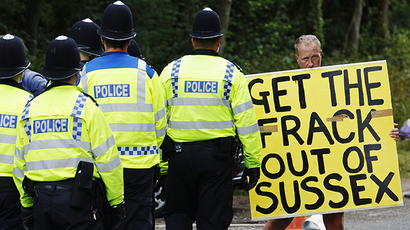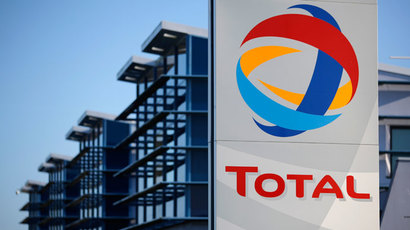UK Fracking could be allowed under people’s homes without their consent

Government sources have admitted that they are considering overhauling UK trespass laws to make it easier to extract shale gas. Under the plans being considered by the government, fracking could take place under homes without owners’ permission.
The government sources say they are mulling over these amendments to the law to make it easier for companies to explore and extract shale gas, amid worries that landowners and other parties could hold up energy companies in costly and lengthy court proceedings, the Telegraph reports.
The plans are expected to be published in the coming months, and are likely to be the most controversial yet in Prime Minister David Cameron’s plans to push through fracking regardless of the environmental cost.
Under the current laws, companies need permission from all the landowners beneath whose land they drill. As shale gas exploration often involves drilling down vertically and out horizontally for more than a mile, this can mean that several landowners are involved.
If permission is not given, then the energy company is committing trespass and the company would have to take the landowner to court, which would then rule if they should be awarded drilling rights and how much compensation should be paid to the landowner.
While compensation is often only a minimal amount, less than £100, companies fear that court proceedings could be costly and drawn out by years of appeals. They have been lobbying the government to change the law.
Unsurprisingly, given how close the government and the energy companies are on shale gas, the Department of Energy and Climate Change (DECC) has confirmed they are looking at whether the current laws are “fit for purpose.”

Greenpeace has tried to use the existing law to encourage thousands of landowners in areas known to be rich in shale gas to decline their permission for fracking to take place. Landowners could also take out injunctions, which would present a further barrier to companies.
One option the government could take is to introduce a compulsory purchase regime, similar to what is already in place for companies needing to lay pipelines underground.
“All options are on the table. It would be difficult to implement a regime that removed any kind of compensation. You could change the rules so you have a de facto right, but then you have to pay. The compensation could be less than £100,” a Whitehall source said.
Even if the trespass law was changed, companies would still need to negotiate access rights for the drilling site, planning permission from the local council, and other permissions from the government and environmental regulators.
“Shale gas and oil operations that involve fracking in wells drilled over a mile down are highly unlikely to have any discernible impacts closer to the surface,” said a spokesman for the DECC.
But environmental groups, as well as many residents in areas which have been earmarked for fracking disagree. They argue that the health and environmental effects are very damaging and include earth tremors, water pollution and human exposure to highly toxic chemicals used in the process.
Fracking or hydraulic fracturing involves pumping water, sand and chemicals down a well at high pressure to fracture rocks and then extract the gas trapped within them.It has been linked to health and environmental damage in some US states where it is extensive.

Ian Crane, a former oil executive, who is now a campaigner against fracking, explained to RT the extreme dangers that shale gas exploration poses to a densely populated country like the UK.
“We’ve seen the effects in places like Colorado and southern Queensland in Australia. When the population density of the UK is 20 times that of Colorado and 100 times that of Queensland, I would simply implore people to do a bit of research and look at the damage and the contamination that has been wreaked in these locations around the world,” he said.
He also pointed out that of the four wells drilled in the UK, seismic events have occurred at two of them, and there is a very real chance that people in areas where fracking is taking place will no longer have access to safe and clean water.














